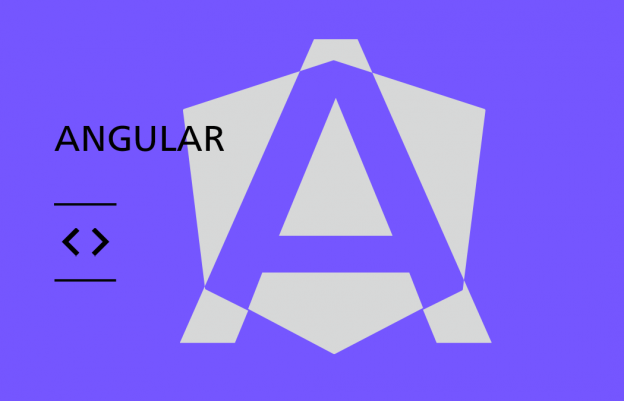

JavaScript has become one of the most widely used programming languages in modern times, enabling development across various platforms - from Web and Mobile to Cross-platform desktop applications. Navigating the modern JavaScript ecosystem is nearly impossible without Node.js, which is why mastering Node.js opens up entirely new avenues for JavaScript engineers to grow. Node.js is utilized by successful companies such as LinkedIn, Uber, Netflix, and many others.
The primary goal of this course is to provide modern JavaScript engineers with a thorough and sequential understanding of Node.js fundamentals and to correctly identify its application areas. Students will learn how to use JavaScript on the server-side (Back-end), explore Node's rich ecosystem and its fundamental characteristics, and gain practical experience in building, debugging, and deploying Node.js applications.
Outcome
Skills Acquired: Javascript, Node.
-
Effectively utilize Node.js as a powerful development tool
-
Distinguish between Node.js strengths and weaknesses
-
Leverage key tools in the Node.js ecosystem
-
Apply core concepts and principles of modern Back-end development
-
Debug and deploy Node.js applications
Wed-Sat | 20:00-23:00
 TBC installment
TBC installment
 BOG installment
BOG installment
Who is this course for?

Front-end developers
Interested in modern back-end development and wants to learn about back-end challenges.

Programmers
The course is designed for all those who have at least a basic level of knowledge in JavaScript.
Program includes
Alumni Club
After successfully completing the final exam, graduates will be automatically enrolled in the Alumni Club. This membership grants them access to exclusive events, content, and special offers from our partner companies
Work Based Learning
The course includes practice-based learning, including assignments/exercises and individual projects.
Bilingual Certification
Upon successful completion of the course, students will receive a bilingual certificate.
Syllabus
Pick your suitable time
Lecturers
Giorgi Kapanadze
React
Giorgi Kapanadze
React
Giorgi has been working as a Software Developer for the last 5 years, and currently holds the position of React Chapter Lead at Omedia. His main field of work is web development. During this time, he has worked on both local and international projects, primarily in European and American markets, creating products that include: booking systems, stock market analysis tools, transportation/route planning applications, and banking/financial services.
 Linkedin
Linkedin
FAQs for this course
Your search Digital Designer did not match any documents
Unable to locate relevant information?
Get Free consultationYou may interest
Relevant Resources
Show MoreFront-end vs Back-end - A Guide to Web Development
When you search for something on Google, you get several choices as a result. With each click, these results change appearance according to our wishes, and we receive a beautiful, functionally sound feedback. We know these results as websites, and their creation is known as Web development. The term web development sounds familiar because it is one of the most trendy skills you can acquire in the IT field.Web development is one of the most important parts of IT because it creates a bridge between the user and the provider. Moreover, through functionality, it helps us automate complex tasks. Front-end and Back-end are integral parts of web development. What are these parts? How do they differ from each other? How much does the functioning of a website depend on them? Does one of them stand higher than the other? If you're interested in the answers to these questions, you've come to the right place, because in this blog you'll learn about the importance and functions of Front-end and Back-end. What is Front-end? As the name suggests, Front-end is what the user sees, connects with, and experiences. It mainly includes those parts of websites and applications that are visible to the user. The person who works on this is known as a Front-end Developer. The job of a Front-end developer is to create designs using user interface and experience. The primary skills of a Front-end developer include knowledge of HTML, CSS, JavaScript, as well as frameworks such as Angular JS, Node.js, etc. Along with this, experience in version control systems such as GIT and GITHUB is important. A Front-end developer is an integral part of web development because they ensure the creation of the necessary structure for the work to be performed. What is Back-end? Back-end development resembles the backstage of a movie or show. Actions performed by the user are analyzed and sent back through codes written by the back-end. The person who develops this is known as a Back-end Developer. The main work of a Back-end Developer involves connecting all aspects to databases and the Front-end. The primary skills of a Back-end Developer include knowledge of languages such as C#, Python, Java, Ruby, etc. Back-end is very important because it gives purpose and functionality to the beauty of an application or website. Characteristics of Front-end Along with a wide range of functions, Front-end has many characteristics: Client-side rendering: It allows developers to render the entire website on the user's browser using JavaScript. Server-side rendering: It makes it possible to visualize sites directly in users' browsers based on changes requested by the users themselves. Optimization: Refined adjustment of HTML, CSS, and JavaScript ensures fast loading of sites for users. Characteristics of Back-end Like Front-end, Back-end is also equipped with many functions that are useful for developers: Databases: Stores data needed for the user. Website architecture: It involves understanding the goals needed to create an application. Scripting: Involves correct formatting of the construction. API: Application Programming Interface or API are tools that involve communication between technologies and provision of necessary data. Front-end Development Languages HTML: Hypertext Markup Language or known as HTML, is a markup language used in building web pages. The language contains elements that provide the basic layout of the website. Along with giving structure to websites, it also displays images or visuals. Its advantages are: ease of use, support for multiple browsers, and combination with other languages. Its disadvantages are: static nature, security, and huge pile of codes.CSS: Cascading Style Sheets or CSS resembles the interior design of a website. CSS is simple because the language more or less includes basic English. Its advantages include multiple browser support, simplicity, and speed. Its disadvantages include cross-browser bugs and it's also tiring for beginners.JavaScript: JavaScript is the most important and popular language of Front-end development. It provides flexibility and responsiveness to the website. Advantages include: simple nature, speed, and additional or extended functionality such as creating dialog boxes, forms, pop-up windows, etc. Disadvantages are: difficulty in debugging and browser support. However, JavaScript is also used in the back-end.Elm: Elm is a simple language used to create fast and continuous websites.SASS: SASS is another scripting language like CSS. SASS has unique features that give users a seamless experience. Advantages include: reusability and clear codes. Disadvantages include: finding problems and solving them.jQuery: jQuery is a JavaScript library that enhances HTML event handling and animations. It's very concise and reduces the number of lines of written code. Front-end Frameworks Vue.js: This is a framework built around JavaScript and is used to create compact web applications.AngularJS: It's a web framework built around JavaScript. It provides features for HTML templates and increases performance.React: This is a popular JavaScript framework that enhances user interface components and provides a dynamic nature to web applications. Back-end Development Languages Python: Python is a widely used back-end development language. Its advantages are: huge collection of libraries, easy-to-read codes, integrations, versatility, etc.PHP: This is another widely used language in back-end development. Its features include: security, platform compatibility, object-oriented programming features, and integration with databases.Java: This is widely used to create Android and desktop applications. Its features include: automatic memory allocation, portability, and one-time compilation.Ruby: Ruby is a general-purpose language that has features such as a large standard library, flexibility, scalability, etc. Back-end Frameworks Django: ეს არის მაღალი დონის ვებ ჩარჩო, რომელსაც გააჩნია ჩაშენებული დანამატები. ის საუკეთესოა ფართომასშტაბიანი, მონაცემზე ორიენტირებული, ინტერაქტიული ვებ აპლიკაციებისთვის. თუმცა, ის არ არის რეკომენდებული მცირე ზომის პროექტებისთვის.Flask: Flask არის მიკროჩარჩო, რომელიც დაფუძნებულია პითონის ენაზე. მას არ სჭირდება ბიბლიოთეკები ან ხელსაწყოები და, შესაბამისად, შესაფერისია მცირე პროექტებისთვის.Ruby on Rails: Ruby on Rails არის ვებ აპლიკაციის ჩარჩო, რომელიც დაწერილია Ruby ენაზე. იგი გამოიყენება მონაცემთა ცხრილის უნაკლო ფორმირებისა და მიგრაციის შემუშავებაში. მარტივი შედგენა და ტესტირება მისი დამატებითი უპირატესობაა.CakePHP: CakePHP არის პოპულარული ვებ ჩარჩო PHP-სთვის. იგი გამოიყენება როგორც მცირე, ისე დიდი აპლიკაციების შემუშავებაში, რადგან უფრო ადვილია კონფიგურაცია და უზრუნველყოფს სრულ უსაფრთხოებას. განსხვავება Front-end და Back-end Development-ს შორის Django: This is a high-level web framework that has built-in add-ons. It's best for large-scale, data-oriented, interactive web applications. However, it's not recommended for small-scale projects.Flask: Flask is a micro-framework based on the Python language. It doesn't need libraries or tools and, therefore, is suitable for small projects.Ruby on Rails: Ruby on Rails is a web application framework written in Ruby. It's used in developing flawless data table formation and migration. Simple compilation and testing is its additional advantage. CakePHP: CakePHP is a popular web framework for PHP. It's used in developing both small and large applications because it's easier to configure and provides complete security.Difference between Front-end and Back-end Development Front-end is the interactive part of a website or application. The graphical user interface (GUI) allows users to perform actions according to their wishes. Users can see and connect with the Front-end. Users cannot see the backstage of the website or application, i.e., the Back-end. It collects information from users, processes it, and ensures the functioning of the application.A Front-end developer works on layout, while a back-end developer's job is to achieve the functional stage.Front-end developers should have an idea about Back-end. Thus, its development is not just about beauty. Although back-end development mainly concerns logic, calculations, servers, APIs, and testing, collaboration and data exchange between front and back developers is very important. So, as you can see, web development is an interesting field in the technology sector. Front-end Development resembles the exterior of a house; paint, wall carvings, wall hangers, or everything a person can see and feel. Back-end resembles the electrical supply, building materials that you can't see, but are crucial for the house. These two things together give an application the best appearance and functionality. Learn About commschool Courses
5 Reasons to Become a React Developer
Modern user interface development is a complex and comprehensive field, and React stands out as one of the most distinctive and in-demand Front-end technologies for solving its challenges.Before learning any new skill, you want to ensure that investing time, money, and effort is truly worth it. So in this blog, I'll share 5 reasons why learning React will be the best decision for your Web development career. High Demand According to Quess's report, the number of job vacancies for React developers has increased by 184%! The reason is that its simplicity saves developers time, which is particularly attractive to companies: developers' saved time means saved money for companies. Therefore, React technology makes it convenient for companies to complete projects in less time, which naturally reflects on the demand for React developers. It's worth noting that according to LinkedIn, React is the #1 most in-demand Front-end technology, and interestingly, 47.6% of technology-related job postings require React. High-Paying You'll probably agree that something so in-demand and important is also well-compensated. In Georgia, the average monthly salary for a React developer is around 3500 GEL, while in the international market, annual income ranges from $54,000 to $92,000. Additionally, the profession allows you to work as a freelancer on major platforms like Toptal and Upwork.If you're curious about the average rates on these platforms, React developers' hourly rates range from $20-$48 (Upwork: $20-38; Toptal: $36-48). React is the #1 Front-end Technology According to GitHub's survey, React was named the #1 Front-end technology. Also, in Stack Overflow's 2020 developer survey, React was named the #2 most loved framework among developers, which isn't surprising as it's very comfortable for developers: it allows creating dynamic, scalable user interfaces with minimal coding in very short time. Huge Community And of course, such a popular technology has the advantage of having a huge community around it: It has up to 7 million downloads weekly. As a result, more and more resources appear – just look at how many open-source projects are on GitHub! Moreover, Facebook is trying to make React the best JavaScript library in the market, which guarantees the long-term relevance of the React developer profession.Currently, over 1,000,000+ websites are built with React technology, including companies like BBC, Twitter, Reddit, Netflix, Facebook, Dropbox, Khan Academy, Airbnb, PayPal, Walmart, Tesla Motors, IMDb, etc. Growth Opportunities Finally, after learning it, you can not only create complex web applications but also develop in the direction of React Native and create applications for iOS and Android devices. If after reading this blog you're even more convinced this is what you want to learn, I'll tell you that you can learn React at CommSchool. The program will be led by Lasha Kakhidze, who currently holds the position of Senior Software Engineer at the American company Padsplit.After completing the course, you'll be able to: Write independently in JavaScript Properly use JavaScript language features Understand and use JavaScript's asynchronous nature and its working principles Understand and use all main concepts of React as a tool Use the main tools of the React ecosystem Distinguish React's strengths and weaknesses Create and deploy small and medium-level applications I think you're now armed with enough motivation, so it's time to take the first step!
7 Reasons Why Software Testing is Essential
Software testing is a method to determine if the actual software product meets expected requirements and is free from defects. It involves running components of a software system manually or using automated tools to evaluate their properties.The goal of software testing is to find errors, bugs, or missing requirements. When a software development project is underway, you should know that errors can appear at any phase of this cycle. Thus, the importance of quality assurance cannot be ignored.The prerequisite for software testing is to identify problems before a critical environment emerges. A properly tested software product ensures reliability, security, and high performance, which leads to time savings, cost-effectiveness, and customer satisfaction.Due to its necessity, software testing is quite a relevant process. Therefore, in this blog, you'll learn about the main reasons why software testing is really important: 1. It helps us save money Software testing has a wide range of benefits. If you discover any flaw in the early phase, it costs less to fix them. Therefore, project cost-effectiveness is one of the main reasons why companies use software testing services.When you hire quality analysts or testers who have great experience and have received technical education for projects, they are investments and the project will benefit. 2. Security Security is one of the important reasons why software testing should be considered. There are many situations where user information and details are stolen and used for other benefits, so people are looking for well-tested and reliable products.When a particular product undergoes testing, the user can be assured that they will receive a trusted product that will be secure. 3. Product quality To ensure the viability of a particular product, it must work consistently. Compliance with product requirements is a prerequisite that contributes to obtaining preliminary results. The product should always bring results to the user, therefore, it should function fully to effectively ensure user experience.It is also necessary to check device compatibility. For example, if you are planning to launch an application, it is necessary to check its compatibility with operating systems and a wide range of devices. 4. User satisfaction The primary goal of the product owner is user satisfaction. The reasons for choosing software testing are due to the fact that it offers you a complete user experience in advance.Gaining client trust is certainly not an easy task, primarily if the product works in some cases and not in others. I'm sure you've had such an experience, which may have caused you to delete this application.Today the market is really saturated. Therefore, the first impression is really important and if you can't offer this to the user, they will find another product that will meet all their requirements. 5. Strengthening the development process With the help of quality assurance, you can find a wide range of errors so that they can be reproduced later. When you discover an error, it's easy to fix it. In addition, software testers should work in parallel with the development team, which further accelerates the development process. 6. Makes adding new features easier The more interconnected and old the code is, the harder it is to change. Testing counteracts this tendency and allows developers to confidently add new features. Changing old parts of the code base can be difficult for a new developer, but through testing, they will know if they have violated anything important. This will help them advance the software and defeat the competition. 7. Determining software performance A low-performing computer program or application can reduce your reputation in the market. If you bring a computer program to the market without testing, and after this the software performance does not meet the expectations or requirements of clients, it will be more difficult to convince them and gain their trust in the future. So, with the help of software testing, you will be able to check every aspect of the product. For example, with the help of software testing, it is possible to monitor whether the program matches your browser. Thus, if you discover an error during testing, you will have the opportunity to correct it immediately, which will reduce user dissatisfaction.Therefore, if learning Digital Product Testing & QA seems interesting to you and you want to gain new knowledge and experience in this direction, join us! Learn More about Digital Product Testing & QA Course
 Intermediate
Intermediate  Live-online
Live-online



 Beginner
Beginner 








